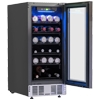How Much Does It Cost to Charge an Electric Car?
With gas prices going up and as the push to electrify America with green, ecofriendly electric vehicles continues, automakers are producing more affordable options for consumers and more households every day are making their next new car choice an EV.
Just to put this in perspective, in 2022 the numbers of EVs have risen an astounding 65% and almost doubled from 3.1% market share to 5.8% of all new cars sold in the US. According to the EIA (Energy Information Administration) California has 37% of EV’s nationwide followed by Florida and Texas.
Let’s break down everything you will need to know about electric car charging at home. If there’s a couple things mentioned that you don’t understand right away, do not fret, there will be deeper explanations as you continue to read further.
Benefits EV Owners can Enjoy
-
Cleaner environment with zero emissions and cleaner fuel
-
Little to no oil changes, brakes last longer, and simpler motors with parts that last longer
When it comes to cost savings, EV drivers benefit most with;
-
Lower fuel costs
-
Lower maintenance costs
-
Tax credits, incentives, and rebates are offered by many States to encourage homeowners to convert to EV
-
Reduction in congestion or pollution fees (as seen in parts of Europe and possibly will become law soon in states like California)
-
Higher resale value
How Much Does It Cost to Charge an Electric Car?
The cost of charging can typically be between $20-$80 per month to charge your EV at home depending on how much you drive and where you live. The US Office of Energy Efficiency & Renewable Energy states the average lifetime cost savings can be anywhere from $3,000 to $10,500 by switching to EV over gas-powered cars.
It’s easy to figure out exactly what to expect and here are the steps to calculating it yourself.
-
Take the amount of miles you intend to drive each month
-
The average electric vehicle can travel between 3 & 4 miles per kWh (kilowatt-hour, not MPG but you can still call it MPG). You can fairly estimate that you will need 250 kWh to charge your EV for 1,000 miles of driving.
-
Use the residential kWh costs in your area to complete the formula.
For example, the national average was $0.1546 per kWh (as of July 2022), so 1,000 miles of travel would cost about $38.65 (the formula is .1546*250=costs). Of course prices change with the volatility of the marketplace and depending where you live also can mean higher or lower kWh prices. Some states like California are known for higher cost of electricity. You can always look at your electric bill which will show you exactly how many kWh your household consumes every month and what your electricity rates are. Some energy companies costs can change depending on the time of day. If your utility company charges more kWh during peak hours, than your time of use is very important.
Other potential Costs
Studies find that most people charge their electric cars at home vs at work or other public charging stations. However, most home charging setups will need some instillations. There is one option called a “level 1” charge which wont need any added instillation, but the charging speed is an issue and will take a a lot of charging time to fill up to a full charge, especially if your EV has a large kWh battery like seen in SUVs.
For this reason, most homeowners will choose to install a “level 2” home charger which requires you to buy special charging equipment and hire an electrician to install it. Level 2 EVSE (electric vehicle supply equipment) enables fast charging and usually starts at about $400 for the equipment, but can go much higher in price too. Instillation of a level 2 home charging network on average costs about $600 per unit, but can also be much higher depending on the electrician’s service costs and what labor it entails. These should be viewed as one time fees that you can add into your overall average price to get your home EV charging station setup and ready for daily use.

Understanding Electric Automotive Charging at Home
Level 1 vs Level 2 (Voltage)
We have already briefly touched on “level 1” and “level 2” charging stations (sometimes called tiers instead of levels). This is what the industry refers to when measuring what voltage your charger uses. This essentially identifies the amount of electricity that is being used to charge to your battery and this impacts the charging speed of your EV’s battery.
What’s the difference between level 1 and level 2 EV charging?
• Level 1 Charger - Uses a standard home outlet 120-volt outlet. This type of EV charger will eventually replenish your EV’s battery but will take a while. Think about how long it takes to charge your laptop or smartphone and then imagine how long it would take using the same voltage to charge your EV’s huge kWh battery capacity. If you’re not in a hurry or don’t travel many miles, this is a convenient method to charge your vehicle as you can plug it into virtually any electrical outlet and its usually a little cheaper type of charging infrastructure. The energy consumption would be the same as a level 2, it just takes longer.
• Level 2 Charger - A much faster charge than level 1 but requires a 240-volt outlet. This is the type of outlet that you sometimes see behind certain large appliances like a washer and dryer, oven, range, and refrigerator. If you want a faster charge, take a lot of road trips, or put a lot of daily miles on your EV, it is highly recommended to have a 240-volt outlet installed in your garage. It may cost more to install, but it would also add value to your home. These are all things to consider when factoring the overall cost of charging an electric vehicle at home
When shopping for a level 2 home charging station, you don’t need to understand the engineering of a Level 2- or 240-volt outlet to understand it gives more power to charge your EV quicker.
• Level 3 Charging - This is a 480-volt supply that almost all homes and business cannot support. These (DC fast charging or Direct Current) are super fast chargers that can replenish your EV’s battery at incredible speeds that can give 3 to 20 miles of range per minute of charge. You will only find these in specific commercial locations such as public charging stations, some corporate offices, and malls.
NEMA 6-50 vs NEMA 14-50
You will mostly see two types of level 2 home charging station outlets defined as 14-50 and 6-50. It’s good to know exactly what you have or need before installing an electric vehicle charging station at home. This way, you know all chords and outlets are compatible and you can freely charge your EV. An electrician can help you as well, but you will need to know this when purchasing a charging station.
• NEMA 6-50 - Newer so less common, more affordable, easier to install, doesn’t require a neutral connection.
• NEMA 14-50 - More common, doesn’t require a neutral connection.
They both will give off the same amount of amperage to your EV. Essentially it comes down to, what outlet do you have or should you install in your home. If you plan on travelling a lot with your own charging station, you will find more 14-50 outlets than 6-50.

Amperage
One last thing to consider when purchasing your EV home charging station is the Amperage. A 240 volt outlet can supply 50 amps of juice so its pretty simple to understand that the more amps your charging station can support, the faster your EV’s battery will charge.
Best Home EV Charging Stations
Deco Home Level 2 Wallbox EV Charging Station, 40 Amp 240V, SAE J1772 And Tesla Plug, IP54
-
Swift and Efficient Charging - 9.6KW Power Output for Fast EV Charging! Capable of handling up to 40 Amps at 240 Volts, ensuring fast Level 2 charging for your vehicle
-
User friendly Display - Monitor charging progress with 4.3'' LCD Screen and LED Indicator, providing real-time updates and eliminating guesswork
-
Safety - Type B RCD protection and multiple safeguards for secure EV charging, minimizing risks and maximizing peace of mind
-
Weatherproof - IP54 splashproof rating for uninterrupted charging in any weather, a robust and safe solution for charging electric vehicles
-
EV Compatibility - BMW: 5 Series 530e, X5 xDrive40e, i3; Ford: C-Max Energi, Fusion Energi, Mustang Mach-E; Chevrolet: Bolt EV, EUV, Volt; Hyundai: Ioniq 6, Ioniq 5, Ioniq Electric, Kona Electric; Nissan: LEAF, LEAF S, LEAF S PLUS; Honda: Clarity Electric, Clarity PHEV; Toyota: Prius Prime, RAV4 Prime, Mirai, bZ4X; Mitsubishi: Outlander PHEV; Subaru: Crosstrek Hybrid; Fiat: 500e, 500; Jaguar: I-PACE; KIA: Niro PHEV, EV6, Niro EV; Porsche: Cayenne S E-Hybrid, Taycan; Volkswagen: e-Golf, ID3 & ID4; Chrysler: Pacifica; Audi: e-tron, e-tron Sportback; Tesla: All Models
Deco Home Level 1/2 32A 240V Portable EV Charger, NEMA 14-50 And 5-15 Plugs, Tesla Adapter
-
Adjustable Current Output - This Portable EV Charger allows users to customize the charging current output from 8 to 32A, providing flexibility to suit individual charging preferences and vehicle requirements.
-
Dual Voltage Compatibility - Includes Level 2 NEMA14-50 220-240V plug and Level 1 NEMA 5-15 (MAX current 13A) 120-140V adapter cable - compatible with a wide range of EVs, accommodating different charging infrastructures.
-
Weatherproof Design, Impact Resistant - The IP65 weatherproof rating ensures it can withstand various weather conditions, making it suitable for use outdoors or in challenging environments without compromising charging performance.
-
Safety - Equipped with a range of safety protections ensuring a secure and reliable charging process. RCD protection, leakage current protection, over current, ground, surge, and more.
-
LCD Screen and LED Indicator - The LCD screen and LED indicator enable users to easily monitor the charging process, providing real-time information on the status of their EV's charging
-
EV Compatibility - BMW: 5 Series 530e, X5 xDrive40e, i3; Ford: C-Max Energi, Fusion Energi, Mustang Mach-E; Chevrolet: Bolt EV, EUV, Volt; Hyundai: Ioniq 6, Ioniq 5, Ioniq Electric, Kona Electric; Nissan LEAF, LEAF S, LEAF S PLUS; Honda: Clarity Electric, Clarity PHEV; Toyota: Prius Prime, RAV4 Prime, Mirai, bZ4X; Mitsubishi: Outlander PHEV; Subaru: Crosstrek Hybrid; Fiat: 500e, 500; Jaguar: I-PACE; KIA: Niro PHEV, EV6, Niro EV; Porsche: Cayenne S E-Hybrid, Taycan; Volkswagen: e-Golf, ID3 & ID4; Chrysler: Pacifica; Audi: e-tron, e-tron Sportback; Tesla: All Tesla Models




















